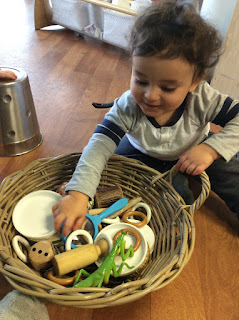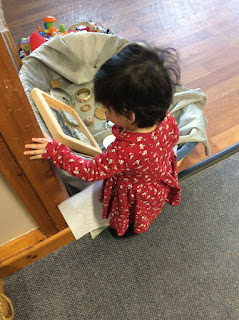Did you know…?
- Over 550 children under 16 are taken to A&E in the four weeks surrounding bonfire night alone.
- Many more boys than girls are injured by fireworks – especially boys aged 12 to 15 years.
General safety reminders
Children under five are too young to safely hold a sparkler and don’t really understand why they might be dangerous. Avoid giving them one to hold.
Babies or children can wriggle in your arms and reach out unexpectedly. Avoid holding a baby or child when you have a sparkler in your hand.
Children over five will still need you to supervise them when they use sparklers. It’s safest if they wear gloves when they’re holding them. They might seem like 'fireworks lite' but sparklers can reach a temperature of 2000ºC. Have a bucket of water handy to put them in so that no-one can pick up a hot one off the ground. Teach them not to wave sparklers near anyone else or run with them.
Safety reminders for your own event
If you want to be safe on bonfire night take your child to your local organised event. If you are holding your own or going to a friend's, it’s good to remember the following things.
- Children do need careful supervision. Have a marker, like a rope, for the children to stand behind at a safe distance from the display.
- Avoid noisy fireworks late at night, especially after 11.00pm.
- Use a torch – rather than a naked flame - to carefully read the instructions. Remember the rule to light a firework, hold the firework at arm’s length and light it with a taper or firework lighter.
- Store fireworks in a metal box until you are ready to use them.
- Never throw spent fireworks onto a bonfire.
- It’s best to be fully in control when you’re lighting fireworks. Avoiding alcohol until you’ve set them all off is the safest option.
- Don’t go back to it once a firework has been lit. Sometimes they can be very slow to get started and may take you by surprise.
- The safest place for a bonfire is at least 18 metres (60 ft) away from the house and surrounding trees and hedges, fences or sheds.
- After you’ve finished the display, make sure that anyone who is helping you to clear up uses tongs or gloves to collect all the spent fireworks to avoid burning themselves.
Reminders in an emergency
- Cool any burns immediately with cold water. Keep the burn under the running water for 20 minutes.
- Don’t touch the burn or pull at any clothing that might be stuck to it.
- If someone’s clothing catches on fire, get them to stop and drop to the ground and roll them any heavy material (like a curtain).
- Get advice from a doctor, the A&E department at your local hospital, or call the NHS for advice on "NHS 111" in England and Scotland and NHS Direct (0845 4647) in Wales.
- Get medical advice for any burn on a child larger than a postage stamp.
- If the burn involves a child’s face, hands, feet, joints or genitals, it should be seen by a doctor.
Most children who die in fires die because they breathe in smoke which poisons them, rather than being burnt by the actual fire. Get some tips on preventing fires in your home.
Did you know…?
- Fire is one of the biggest killers of children in the home, although numbers have fallen considerably over the years.
- Thick black smoke from a fire can fill your home in minutes and can kill your child in less than a minute.
- You and your family are four times as likely to die in a fire if your smoke alarm doesn’t work.
Safety reminders in case of a fire
Smoke alarms
You need a working smoke alarm on every level of your home, upstairs as well as downstairs, to warn you quickly if a fire starts. This is especially important if a fire starts at night.
Take a minute every week to check your smoke alarm and you double your chances of saving your and your family’s lives.
Don’t remove the battery if your smoke alarm keeps going off when you’re cooking. Move it further away from the kitchen or replace it with one that has a silencer button or one that’s toast proof. Ask your local fire and rescue service for advice.
Escape plan and routines
Plan and practise how you and your family are going to escape if a fire breaks out can save vital minutes that can make the difference between escaping or not getting your family out.
Teach children what they should do if a fire breaks out. They will be scared and may be tempted to hide which means it takes longer to escape or rescue them.
Follow a night-time routine – switch off appliances, close doors and windows, make sure cigarettes and candles are completely extinguished, etc.
Clear away any clutter in the hallway before you go to bed. If a fire breaks out you don’t want to be tripping over things in the rush to escape, especially if the house is filled with thick black smoke and it’s dark.
Safety reminders to prevent fires
Chip pans are the biggest cause of house fires. Replacing your chip pan with an electric deep fat fryer means your risk of a chip pan fire is much less.
It’s safer to avoid running your washing machine or dishwasher at night in case it has an electrical fault which starts a fire while your family is asleep.
Store matches and lighters out of reach in a high up cupboard. Remember to put them back in the same place every time.
Make sure your cigarette is properly out and if you’re really tired, it’s best not to smoke in case you fall asleep with the cigarette in your hand.
























